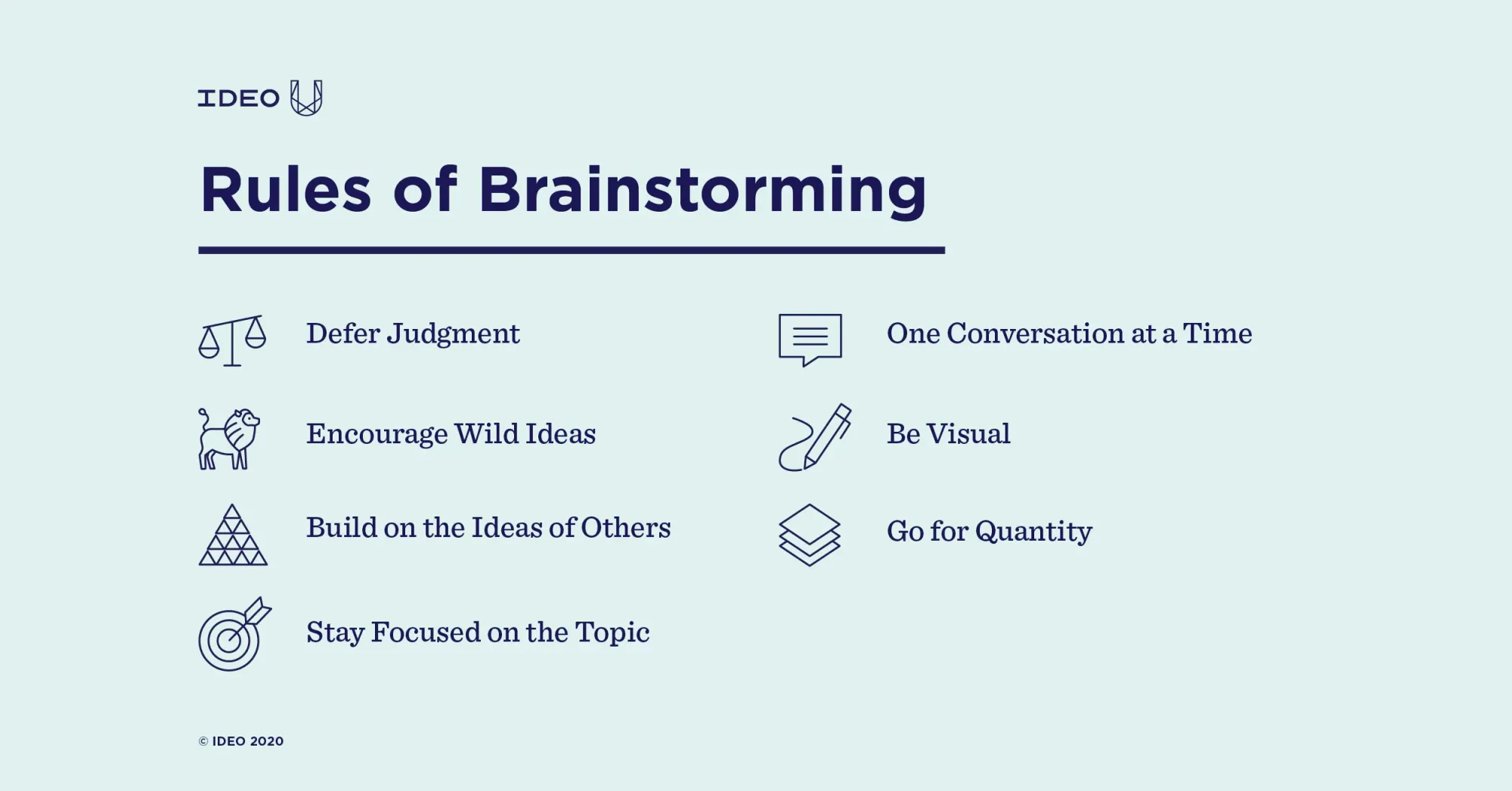How to have good ideas
What are the steps needed to come up with a single good idea?

We were hosting a group online brainstorming session the other day with a client. There were a lot of very clever, experienced professionals on the call from all parts of the world. The agenda was tight; lots to get through in the limited time available.
Part of the packed program was 40 minutes of brainstorming.
Having facilitated countless brainstorming sessions over the years, what experience has taught us is that great creativity and useful ideas don't often come from a miraculous, single moment of divine inspiration.
If you want to have good ideas, you need to generate a lot of ideas.
In achieving this, we have always found IDEOs simple guidelines for brainstorming very useful:

The most important of all of these is the need for quantity over quality.
And for this - we often offer the group a series of very tight time limits of just 90 seconds to jot down as many wild and audacious ideas as they can in the time allowed. (BTW- using a stopwatch to dramatically showcase the limited time allowed is also a great mechanism to inject some urgency into the process).
What's also extremely important is making sure that the group stays focused on the topic. Staying focused also means that the topic needs to be clear and well-considered beforehand and of high enough value to get participants excited about exploring the various options available.
Ironically these guidelines actually free-up the thinking mechanism of the group rather than constraining it...when they are adhered to.
Brainstorming online, with a diverse group of participants, who don't know each other, and what to prove to everyone that they deserve to be on the call...is extremely challenging.
What tends to happen almost immediately is that you quickly go off topic, get lost in the detail and ideas are immediately judged for plausibility before they have even landed in the minds of the collective for further exploration.
The result is a trickle of ideas that just aren't broad enough to take to the next stage of exploration if the group is to successfully innovate.
Innovation is an extremely hungry consumer of divergent inspiration.
The beast needs to be fed a lot of raw material if you are to get anything useful out on the other side. This particular session was less than ideal and another workshop will need to be set up to have another bite at the cherry.
But that's sometimes how it goes. And that's also okay.
The process of innovation can be arduous, but setting up another ideas sprint is far better than going ahead to the next stage with a portfolio of concepts that simply isn't broad enough.
The old mantra holds weight always; if you want to have a good idea, you need to have a lot of ideas.
Even lots of silly ideas are far better than having just a few ideas.
Companies that enjoy the benefits of having a culture of innovation are those that are structured and organised around the enablement of a constant curiosity of the world around themselves. They endlessly expose their minds to new ideas and concepts and dedicate themselves to 'feeding the innovation monster' with it's staple diet of fresh thinking.
This is an ongoing process, but the more you do it, the better your measurable innovation outcomes will be.

